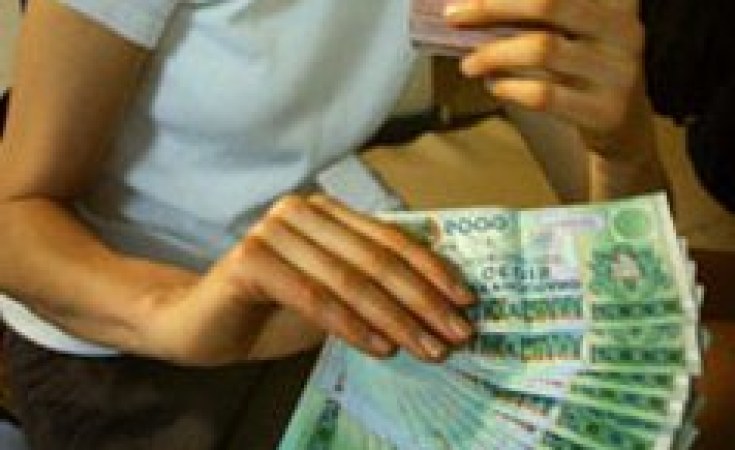Ghana has had to go to the International Monetary Fund (IMF) for assistance to help cure its fiscal and debt vulnerabilities, which are worsening fast amid challenges from the external environment, including the impacts of COVID-19 and the Russian-Ukraine war.
The programme will support the country in implementing policies to restore macroeco-nomic stability and ensure debt sustainability while protecting the most vulnerable parts of its population.
It would, thus, help create the conditions for inclusive and sus-tainable growth and job creation.
It is expected that the IMF as-sistance would also help alleviate exchange rate pressures.
To secure an IMF credit is a process and one of the steps involved in it is staff-level agree-ment.
This is an agreement reached between a country requesting for assistance and the IMF Mission subject to the approval of the IMF Management and Executive Board and receipt of the necessary financing assurances before loans are granted.
On Monday, the IMF staff mission in the country since December 1 and the Ghana-ian authorities reached such agreement on economic policies and reforms to be supported by a new three-year arrangement under the Extended Credit Facil-ity (ECF) of about US$3 billion.
We hope that the approval and the necessary financial assurances would not take time in coming in for the country to secure the credit for its intended purposes.
It is reported that the government has committed to a wide-ranging economic reform programme, which builds on the government's Post-COVID-19 Programme for Economic Growth (PC-PEG) and tackles the deep challenges facing the country.
It is said the fiscal strat-egy relies on measures to increase domestic resource mobilisation and streamline expenditure.
We hope the government will do its best for the whole country to reap the benefits of the assistance.
This is important because governments are fond of di-verting funds into areas not budgeted for to the neglect of certain sectors of the economy.
We know the IMF assis-tance alone cannot get the country out of the woods, so the government should keep its word about increas-ing domestic resource mo-bilisation and streamlining expenditure.
We think henceforth, the government must critically assess all projects in terms of the cost, whether the sources of funding are sus-tainable within the delivery periods, and other related import-ant matters before embarking on them. The frenzy of embarking on projects without the needed at-tention for such considerations is part of the reasons for the current precarious situation the country finds itself in.
Another problem has to do with the handling of foreign exchange, particularly the dollar.
It is about time the state stream-lined the system to eliminate dollarisation in the country.
Why do we live in a country whose currency is the cedi but some people and organisation or entities like hotels are allowed to price goods and services in dollars?
Let us develop a system where black marketing is eliminated and the dollar given only by the banks and authorised forex bureaux to those who need it to travel abroad or transact international business.
And even such transactions should be spearheaded by the banks to ease the pressure on the dollar, which has correlation with ever-increasing inflation in the country.


